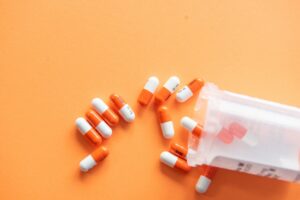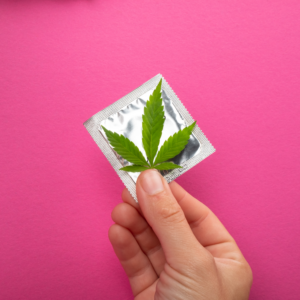"I’ve started seeing it around. It is claimed to be synthetic marijuana. Is that true? What is the difference between real and synthetic? "
Short Answer:
Spice, also known as synthetic cannabinoids (SC’s), is not a safe alternative to medical cannabis. “Synthetic” refers to cannabinoids that are prepared chemically in a lab to mimic “real” cannabinoids that occur naturally in unadulterated medical cannabis. There is currently no accepted medical use for SC’s and they should be avoided. Migraines can be treated with certain medical cannabis products; however, you should first consult your primary care physician to evaluate the nature of your headaches and develop a treatment plan. A cannabis-recommending physician may then be able to augment this treatment plan by suggesting effective medical cannabis products.
Long Answer:
Spice is a slang term that refers to synthetic cannabinoids (SC’s). The term actually refers to a vast number of chemical compounds that have been manufactured to simulate the effect of THC, one of the active compounds found naturally in medical cannabis. They are often marketed as “aromatherapy” and even come labeled “not for human consumption” to avoid regulation by authorities. Clinical researchers have attempted to examine the effects of SC’s; however, it is difficult to catalog accurately since the formulation of SC’s is constantly changing to avoid regulation.
SC’s are usually prepared in a laboratory and then sprayed onto an organic plant material for smoking or into a resin or liquid suspension for use with a vaporizer. SC’s have been associated with seizure, heart attack, liver and kidney toxicity, and in some cases death. SC’s have negative health effects that greatly exceed the risks associated with medical cannabis and unlike medical cannabis they have no accepted medical benefits. Unfortunately, intoxication with SC’s is often untreatable since it is difficult to identify the active compound. Treatment is usually just supportive care until the body naturally metabolizes the offending agent.
In a recent review published in the World Journal of Pediatrics Feb 2015 (freely accessible, see link below) it was noted that many users of SC’s state they are seeking the effects of medical cannabis while avoiding detection from drug testing for cannabis. Unfortunately, SC consumption and associated harms have sky rocketed over the past 5 years and much of it may be attributed to a lack of safe legal access to medical cannabis and discrimination by drug testing for medical cannabis.
References:
Bozkurt M, Umut G, Evren C, Karabulut V. Clinical Characteristics and Laboratory Test Results of Patients Admitted to Outpatient Clinic for Synthetic Cannabinoid Usage. J Psy Neu Sci. 2014;27:328-334
Castellanos D, Gralnik LM. Synthetic cannabinoids 2015: An update for pediatricians in clinical practice. World J Clin Pediatr. Feb 8, 2016; 5(1): 16-24
https://www.wjgnet.com/2219-2808/full/v5/i1/16.htm#B14
sankmd




